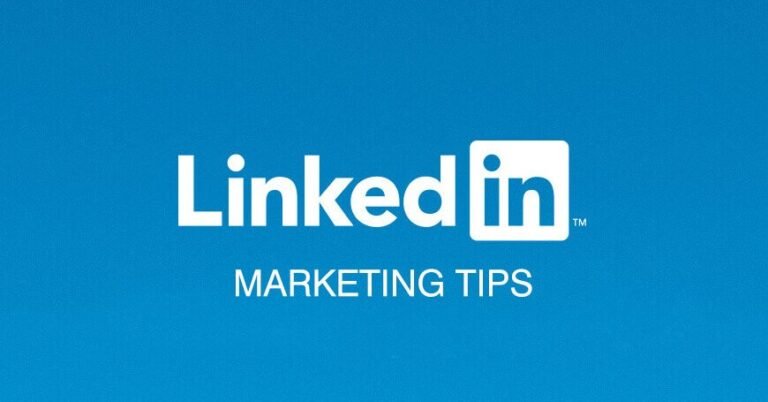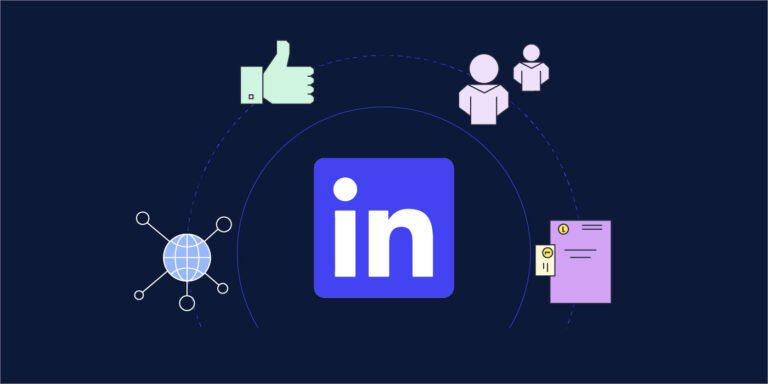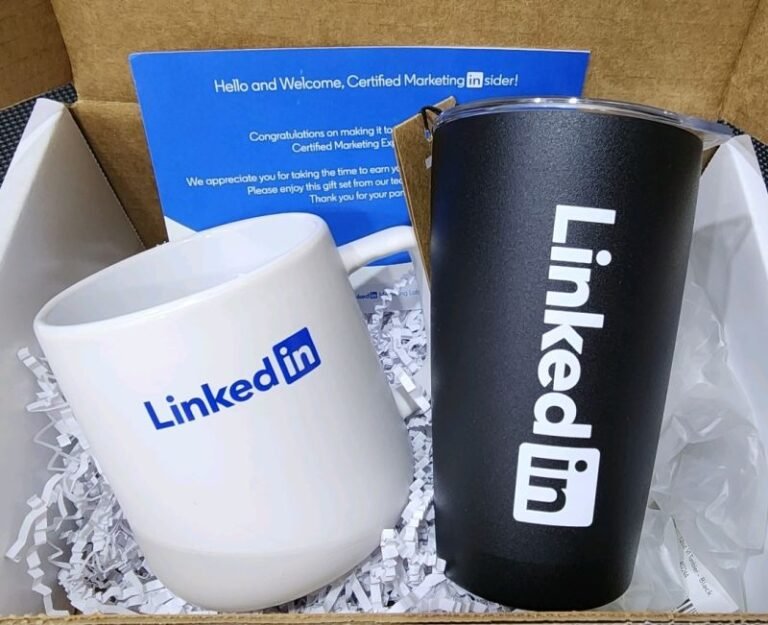LinkedIn Marketing Tools:
Introduction to LinkedIn Marketing Tools
LinkedIn has become an indispensable platform for B2B marketing, offering unparalleled opportunities to connect with professionals and decision-makers across industries. As the world’s largest professional network, LinkedIn provides a unique environment for businesses to showcase their expertise, build relationships, and generate high-quality leads.
Importance of LinkedIn for B2B Marketing
LinkedIn’s focus on professional networking makes it an ideal platform for B2B marketers. With over 740 million members worldwide, it offers access to a vast pool of potential clients, partners, and industry influencers. The platform’s business-oriented nature ensures that your marketing efforts reach an audience that is already in a professional mindset, increasing the likelihood of meaningful engagement and conversions.
Overview of LinkedIn Marketing Tools
LinkedIn offers a suite of marketing tools designed to help businesses maximize their presence on the platform. These tools range from basic profile optimization features to advanced analytics and advertising solutions. By leveraging these tools effectively, marketers can enhance their visibility, engage with their target audience, and drive measurable results for their businesses.
- Profile optimization tools
- Content creation and scheduling tools
- Advertising platforms
- Analytics and insights tools
- Lead generation tools
LinkedIn Marketing Tools, LinkedIn Tools for Marketing
LinkedIn marketing tools are specialized software and features designed to help businesses and professionals optimize their presence and activities on the LinkedIn platform. These tools serve various purposes, from simplifying content management to providing in-depth analytics for performance tracking.
Benefits of Using LinkedIn Marketing Tools
Incorporating LinkedIn marketing tools into your strategy can significantly enhance your marketing efforts on the platform. Here are some key benefits:
- Increased efficiency in managing LinkedIn activities
- Better targeting and reach for your content and ads
- Improved engagement with your target audience
- Enhanced ability to measure and analyze performance
- Streamlined lead generation and nurturing processes
| Benefit | Description |
| Time-saving | Automate repetitive tasks and manage multiple aspects of your LinkedIn presence from a single dashboard |
| Data-driven decisions | Access detailed analytics to inform your marketing strategies and optimize your campaigns |
| Consistent branding | Maintain a cohesive brand image across your LinkedIn content and activities |
| Scalability | Easily manage and grow your LinkedIn presence as your business expands |
| Competitive advantage | Stay ahead of competitors by leveraging advanced tools and insights |
Scheduling Content
Consistent posting is crucial for maintaining an active and engaging presence on LinkedIn. By regularly sharing valuable content, you can keep your audience informed, showcase your expertise, and stay top-of-mind with potential clients and partners.
Importance of Consistent Posting
Consistent posting on LinkedIn helps to:
- Build brand awareness and recognition
- Establish thought leadership in your industry
- Increase engagement with your target audience
- Improve your visibility in LinkedIn’s algorithm
- Create a sense of reliability and professionalism
Best Practices for Scheduling LinkedIn Posts
To maximize the impact of your LinkedIn content, consider the following best practices:
- Determine the optimal posting frequency for your audience
- Vary your content types (articles, images, videos, polls)
- Use a content calendar to plan your posts in advance
- Experiment with different posting times to find what works best
- Maintain a balance between promotional and value-added content
Tools like Hootsuite, Buffer, and Sprout Social offer scheduling features specifically designed for LinkedIn, allowing you to plan and automate your content distribution effectively.
- Schedule posts weeks or months in advance
- Analyze post performance to refine your strategy
- Collaborate with team members on content creation and approval
- Maintain a consistent posting schedule across time zones
Automated Messaging
Automated messaging on LinkedIn can be a powerful tool for streamlining your outreach efforts and nurturing relationships at scale. When used thoughtfully, it can help you connect with more prospects and maintain engagement with your network.
How Automated Messaging Works
Automated messaging tools for LinkedIn typically work by:
- Allowing you to create message templates for different scenarios
- Enabling you to set up triggers for sending messages (e.g., new connections, profile views)
- Providing options for personalization based on recipient data
- Offering scheduling features to send messages at optimal times
Benefits of Automated Messaging on LinkedIn
When implemented correctly, automated messaging can offer several advantages:
- Increased efficiency in managing large-scale outreach campaigns
- Consistent follow-up with leads and connections
- Ability to nurture relationships even with limited time resources
- Improved response rates through personalization and timing optimization
However, it’s crucial to use automated messaging judiciously and maintain a personal touch to avoid coming across as spammy or insincere.
| Do’s | Don’ts |
| Personalize messages with recipient-specific information | Send generic, one-size-fits-all messages |
| Use automation for initial outreach and follow-ups | Rely solely on automation for all communications |
| Monitor response rates and adjust your approach accordingly | Ignore negative feedback or low engagement rates |
| Combine automated messages with genuine, personal interactions | Overwhelm recipients with too many automated messages |
Performance Insights
Understanding the performance of your LinkedIn marketing efforts is crucial for refining your strategy and achieving better results. LinkedIn provides native analytics tools, and there are also third-party solutions that offer more advanced insights.
Key Metrics to Track on LinkedIn
When evaluating your LinkedIn performance, focus on these essential metrics:
- Engagement rate (likes, comments, shares)
- Follower growth
- Post reach and impressions
- Click-through rates on links
- Profile views and actions taken
- Lead generation metrics (if applicable)
Tools for Analyzing LinkedIn Performance
Several tools can help you dive deeper into your LinkedIn analytics:
- LinkedIn’s native analytics for Company Pages and individual profiles
- Social media management platforms like Hootsuite and Sprout Social
- Specialized LinkedIn analytics tools like Shield App or Dux-Soup
These tools often provide:
- Detailed breakdowns of post performance
- Audience demographics and behavior insights
- Competitor analysis features
- Custom reporting options
By regularly analyzing these metrics, you can identify what content resonates with your audience, optimize your posting strategy, and measure the ROI of your LinkedIn marketing efforts.
Generating More Leads
Lead generation is one of the primary goals for many businesses using LinkedIn. The platform’s professional focus makes it an ideal environment for identifying and nurturing potential clients or partners.
Strategies for Lead Generation on LinkedIn
To effectively generate leads on LinkedIn, consider implementing these strategies:
- Optimize your profile and company page for discoverability
- Share valuable, industry-specific content regularly
- Engage with your target audience’s posts and discussions
- Utilize LinkedIn’s advanced search features to find prospects
- Leverage LinkedIn Groups to showcase expertise and build relationships
- Use LinkedIn ads to reach a wider, targeted audience
Tools to Enhance Lead Generation
Several tools can help streamline and enhance your lead generation efforts on LinkedIn:
- LinkedIn Sales Navigator: Advanced search and lead management features
- Dux-Soup: Automated profile viewing and data extraction
- LeadFeeder: Identifies companies visiting your website through LinkedIn
- Octopus CRM: LinkedIn automation tool for outreach and lead nurturing
These tools offer features such as:
- Automated connection requests and follow-ups
- Lead scoring and prioritization
- Integration with CRM systems
- Detailed analytics on lead engagement
By combining effective strategies with the right tools, you can significantly boost your lead generation efforts on LinkedIn and drive more business opportunities.
Audience and Competitor Research
Thorough research is the foundation of any successful LinkedIn marketing strategy. Understanding your audience and keeping an eye on your competitors can provide valuable insights to inform your content, outreach, and overall approach.
Importance of Research in LinkedIn Marketing
Effective research allows you to:
- Tailor your content to your audience’s interests and needs
- Identify gaps in the market that you can fill
- Stay ahead of industry trends and developments
- Refine your targeting for better engagement and conversions
Tools for Audience and Competitor Analysis
Several tools can assist in conducting comprehensive audience and competitor research on LinkedIn:
- LinkedIn Audience Insights: Provides demographic and interest data about your followers
- SimilarWeb: Offers competitive intelligence on website traffic and digital marketing strategies
- Buzzsumo: Analyzes content performance and identifies influencers in your industry
- SEMrush: Provides detailed competitor analysis, including keyword strategies and ad campaigns
These tools offer features such as:
- Audience segmentation and profiling
- Content gap analysis
- Competitor benchmarking
- Trend identification and tracking
By leveraging these tools, you can gain a deeper understanding of your target audience and competitive landscape, enabling you to craft more effective LinkedIn marketing strategies.
Best LinkedIn Marketing Tools for 2024
As LinkedIn continues to evolve, so do the tools available to marketers. Here’s an overview of some top LinkedIn marketing tools to consider in 2024:
- Hootsuite: Comprehensive social media management platform with strong LinkedIn integration
- Buffer: User-friendly scheduling and analytics tool for LinkedIn and other platforms
- Canva: Design tool with LinkedIn-specific templates for creating engaging visuals
- Dux-Soup: LinkedIn automation tool for lead generation and outreach
- Phantombuster: Automation and data extraction tool for LinkedIn marketing
Features to Look for in LinkedIn Marketing Tools
When evaluating LinkedIn marketing tools, consider the following key features:
- Ease of use and intuitive interface
- Robust scheduling and content management capabilities
- Advanced analytics and reporting functions
- Integration with other marketing tools and CRM systems
- Compliance with LinkedIn’s terms of service and data protection regulations
| Feature | Importance |
| Automation | Saves time and increases efficiency |
| Analytics | Provides data-driven insights for strategy optimization |
| Customization | Allows for personalized messaging and targeting |
| Integration | Streamlines workflows across multiple platforms |
| Security | Ensures data protection and compliance |
By choosing the right combination of tools, you can significantly enhance your LinkedIn marketing efforts and achieve better results in 2024 and beyond.
Social Media Management Tools
Integrating LinkedIn with other social media platforms can help create a cohesive online presence and streamline your marketing efforts. Social media management tools play a crucial role in this integration, allowing you to manage multiple platforms from a single dashboard.
Integrating LinkedIn with Other Social Media Platforms
When integrating LinkedIn with other platforms, consider:
- Maintaining a consistent brand voice across all channels
- Adapting content to suit each platform’s unique audience and format
- Cross-promoting content to maximize reach and engagement
- Using platform-specific features to enhance your content strategy
Tools for Managing Multiple Social Media Accounts
Several tools excel at managing LinkedIn alongside other social media platforms:
- Hootsuite: Offers a unified dashboard for managing multiple social networks
- Sprout Social: Provides comprehensive social media management with strong analytics
- Agorapulse: Features a user-friendly interface and robust reporting capabilities
- Later: Specializes in visual content planning and scheduling across platforms
These tools typically offer:
- Cross-platform content scheduling
- Unified analytics and reporting
- Team collaboration features
- Content curation and suggestion tools
By leveraging these social media management tools, you can create a more efficient and effective multi-platform strategy that includes LinkedIn as a key component.
Creative LinkedIn Marketing Tools
Creating engaging content is essential for standing out on LinkedIn. Creative tools can help you produce visually appealing and interactive content that captures your audience’s attention and encourages engagement.
Tools for Creating Engaging Content
Consider using these tools to enhance your LinkedIn content:
- Canva: Offers LinkedIn-specific templates for creating professional graphics
- Lumen5: Converts text-based content into engaging video presentations
- Prezi: Creates dynamic, interactive presentations for LinkedIn
- Visme: Provides templates for infographics and other visual content
- Adobe Spark: Offers easy-to-use design tools for creating social media graphics
Best Practices for Visual Content on LinkedIn
When creating visual content for LinkedIn, keep these best practices in mind:
- Use high-quality images and graphics that reflect your brand identity
- Incorporate data visualizations to make complex information more digestible
- Experiment with different content formats (e.g., carousel posts, videos, infographics)
- Ensure your visuals are optimized for mobile viewing
- Include clear calls-to-action in your visual content
By leveraging creative tools and following best practices, you can produce visually stunning content that resonates with your LinkedIn audience and drives engagement.
LinkedIn Marketing Tools for Automation
Automation can significantly enhance your LinkedIn marketing efforts by streamlining repetitive tasks and allowing you to focus on strategy and relationship-building. However, it’s crucial to use automation tools responsibly to maintain authenticity and comply with LinkedIn’s policies.
Benefits of Automation in LinkedIn Marketing
Automation in LinkedIn marketing offers several advantages:
- Time-saving on routine tasks
- Consistent engagement with your network
- Scalability of outreach efforts
- Improved data collection and analysis
- Enhanced ability to nurture leads
Top Tools for Automating LinkedIn Tasks
Several tools stand out for their LinkedIn automation capabilities:
- Dux-Soup: Automates profile visits, connection requests, and messaging
- Phantombuster: Offers a wide range of LinkedIn automation workflows
- Expandi: Focuses on safe, cloud-based LinkedIn automation
- LinkedHelper: Provides comprehensive LinkedIn automation features
- Zopto: Specializes in targeted LinkedIn outreach campaigns
These tools typically offer features such as:
- Automated connection requests with personalized messages
- Scheduled posting and content distribution
- Lead generation and data extraction
- CRM integration for streamlined lead management
When using automation tools, always prioritize quality over quantity and ensure your automated activities align with LinkedIn’s terms of service to avoid potential account restrictions.
LinkedIn Marketing Tools for Ideas and Inspiration
Consistently coming up with fresh, engaging content ideas can be challenging. Fortunately, there are tools and strategies to help you stay inspired and generate relevant content for your LinkedIn audience.
Tools for Content Ideas
Consider using these tools to spark new content ideas:
- BuzzSumo: Analyzes popular content in your industry
- Answer the Public: Provides insights into questions people are asking about specific topics
- Google Trends: Shows trending topics and search interest over time
- Feedly: Curates content from various sources based on your interests
- LinkedIn’s Content Suggestions feature: Offers topic ideas based on your audience’s interests
How to Stay Inspired and Creative on LinkedIn
To maintain a steady flow of creative ideas for your LinkedIn content:
- Follow industry thought leaders and competitors for inspiration
- Engage with your audience to understand their pain points and interests
- Repurpose successful content from other platforms for LinkedIn
- Experiment with different content formats (e.g., polls, videos, articles)
- Stay updated on industry news and trends to provide timely insights
By leveraging these tools and strategies, you can consistently produce relevant, engaging content that resonates with your LinkedIn audience and supports your marketing goals.
FAQs
Why use LinkedIn as your marketing tool?
LinkedIn is an invaluable marketing tool due to its professional focus and vast network of business-oriented users. It offers unparalleled opportunities for B2B marketing, lead generation, and establishing thought leadership within your industry. The platform’s targeting capabilities allow you to reach decision-makers and influencers directly, making it highly effective for building meaningful business relationships and driving conversions.
What are the best LinkedIn marketing tools?
The best LinkedIn marketing tools depend on your specific needs and goals. However, some widely recognized tools include Hootsuite for social media management, Canva for creating visual content, and LinkedIn Sales Navigator for advanced prospecting. Other popular options include Dux-Soup for automation, Sprout Social for analytics, and Buffer for content scheduling. It’s important to evaluate each tool based on your unique requirements and budget to find the best fit for your LinkedIn marketing strategy.
How effective is LinkedIn marketing?
LinkedIn marketing can be highly effective, particularly for B2B businesses and professionals. The platform boasts high engagement rates and a professional audience that’s often in a business mindset. According to LinkedIn, 80% of B2B leads come from LinkedIn, and it’s 277% more effective for lead generation than Facebook and Twitter. However, the effectiveness of your LinkedIn marketing efforts depends on factors such as your strategy, content quality, and consistency in engaging with your audience.
How do I find LinkedIn prospects?
Finding prospects on LinkedIn involves a combination of strategies and tools. Start by optimizing your profile and company page to attract potential leads. Use LinkedIn’s advanced search features to find individuals or companies that match your target audience criteria. Engage with relevant content and participate in industry groups to increase your visibility. Tools like LinkedIn Sales Navigator can enhance your prospecting efforts with advanced filters and lead recommendations. Additionally, consider using automation tools like Dux-Soup or Phantombuster to streamline your outreach process.
What is the best time to post on LinkedIn?
The best time to post on LinkedIn can vary depending on your specific audience and industry. However, general studies suggest that weekdays, particularly Tuesday through Thursday, tend to see higher engagement rates. The most active times are often during business hours, with peaks around 9-10 AM and 1-2 PM. It’s crucial to experiment with different posting times and analyze your own audience’s behavior using LinkedIn analytics or third-party tools to determine the optimal posting schedule for your content.
How many times a week should I post on LinkedIn?
The ideal posting frequency on LinkedIn depends on your goals, resources, and audience engagement. Generally, posting 2-
Get AED 500 Voucher
Signup and Get AED 500 off on our marketing packages. Promote your business on LinkedIn at an unbeatable discounted price!
What’s Included?
Grow your business at a fraction of the cost!
Limited Time Offer – Act Now!








